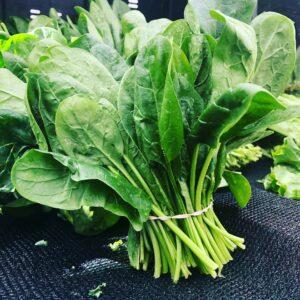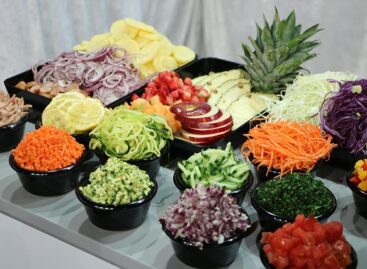Spinach has gained new momentum
The cultivation of spinach in Hungary gained momentum again as soon as the season started. This vegetable is grown on more than 540 hectares, and according to last year’s data, farmers harvested a total of 12,000 tons. István Varga, the chairman of the field vegetables sub-department of the National Chamber of Agriculture, said that a significant part of the produced quantity, about 90 percent, is used for industrial processing, for example for the freezing and drying industry.
 Field cultivation of spinach fits well into different crop rotations, similar to green peas. The plant reaches harvestable state in 70-110 days, so it is removed from the fields relatively quickly. In Hungary, the cultivation of spinach is mainly concentrated in the area between the Danube and Tisza, where it is mainly cultivated in irrigated areas. Most of the spinach intended for fresh consumption is delivered to retail networks from foil tents and small gardens.
Field cultivation of spinach fits well into different crop rotations, similar to green peas. The plant reaches harvestable state in 70-110 days, so it is removed from the fields relatively quickly. In Hungary, the cultivation of spinach is mainly concentrated in the area between the Danube and Tisza, where it is mainly cultivated in irrigated areas. Most of the spinach intended for fresh consumption is delivered to retail networks from foil tents and small gardens.
China leads the world in spinach production, followed by the United States, Japan and Turkey. According to István Varga, spinach is globally widespread and can be found in many cuisines, for example in Italy it is often used in pasta dishes. In Hungary, however, he believes that spinach has not yet received the attention it deserves. It should appear on the tables much more often, either as a side dish next to fried meats or as an ingredient in pasta dishes.
Related news
Hungarian vacuum technology could revolutionize space nutrition
🎧 Hallgasd a cikket: Lejátszás Szünet Folytatás Leállítás Nyelv: Auto…
Read more >Related news
Important legislative changes: certain consumer rights now extend to SMEs
🎧 Hallgasd a cikket: Lejátszás Szünet Folytatás Leállítás Nyelv: Auto…
Read more >What goes on a dog’s plate? Here’s the test of dog salami!
🎧 Hallgasd a cikket: Lejátszás Szünet Folytatás Leállítás Nyelv: Auto…
Read more >Expert: EU AI regulation is here, but Hungarian businesses will have time to prepare for the changes
🎧 Hallgasd a cikket: Lejátszás Szünet Folytatás Leállítás Nyelv: Auto…
Read more >








